ngel Cabrera is President of Thunderbird School of Global Management, which is widely recognized as the number-one school in the international business field, and President-elect of George Mason University. Before coming to Thunderbird, he was Dean and professor of IE Business School in Madrid. A native of Spain, Cabrera earned his PhD and MS in psychology from the Georgia Institute of Technology, which he attended as a Fulbright Scholar, and a BS and MS in engineering from Madrid Polytechnical University, Spain's premier engineering school. He has authored numerous papers for leading academic journals and conferences and is often quoted by international media on global business issues and education.
An outspoken advocate for business global social responsibility, Cabrera advises the United Nations Global Compact in academic affairs; in 2007, he chaired the international committee that authored the Principles for Responsible Management Education. The World Economic Forum recognized him as a Global Leader for Tomorrow in 2002 and a Young Global Leader in 2005. In 2008, he chaired the Global Agenda Council for Promoting Entrepreneurship. In 2004, BusinessWeek named him a Star of Europe and in 2011, the Financial Times listed him among the top twenty business school deans in the world. He is an Aspen Institute H. Crown Fellow and founder of The Oath Project, a foundation that promotes managerial professionalism around the world.
Gregory Unruh is the Director of the Lincoln Center for Ethics in Global Management at the Thunderbird School of Global Management and a well-known sustainability expert. After nearly a decade in corporate environmental consulting, Unruh pursued a career of research and publication dedicated to identifying and spreading the sustainability innovations needed by business and the world. A frequent contributor to the Harvard Business Review , Forbes , and the Huffington Post , Unruh is also the author of Earth, Inc.: Using Nature's Rules to Build Sustainable Profits , a leading guide to sustainable business strategy. He is also an inspirational public speaker and has presented at prestigious events such as the World Economic Forum, the Clinton Global Initiative, and the United Nations Global Compact. He can be contacted through his website at www.gregoryunruh.com .
ACKNOWLEDGMENTS
We owe this book to Thunderbird. Our home institution is not only our employer but our main source of information, insight, and inspiration. We met many of the global leaders we highlight in this book at Thunderbird, and much of the academic work that underlies our model came from our Thunderbird colleagues.
The Global Mindset chapter draws directly from the work of the Global Mindset Institute, led by Mansour Javidan, as well as the GLOBE project, to which Mary Sully de Luque has made deep contributions. Our views on global entrepreneurship and strategic leadership can be traced to work by our colleagues Kishore Dash, Bob Hisrich, Andrew Inkpen, Michael Moffett, Kannan Ramaswamy, Andreas Schtter, and Nathan Washburn, among others. The insights on how to become global draw from our experiences with our degree and executive programs and have been influenced by Robert Widing, our former provost, and David Bowen, our current provost. We are also grateful to the students and alumni of Thunderbirdwe feel privileged to have taught and learned from them.
The Lincoln Center for Ethics in Global Management, generously sponsored by Thunderbird trustee and friend David Lincoln and his wife Joan, supported Gregory Unruh since his arrival at Thunderbird and provided the help we needed to complete this work. Our colleague Chelsea Oyen kept us on track with our timeline, and Daryl James wrote some of the case studies we feature. Timothy Ogden and Laura Starita of Sona Partners provided invaluable editorial assistance and kept us on topic and on task as we wrote the book.
The World Economic Forum's Young Global Leaders, several of whom are featured in the book, inspired us to write the book and reaffirmed our conviction that global leaders not only can be made, but are badly needed to deal with the opportunities and challenges of today's global marketplace.
Thanks to you all for the insights and inspiration you have gifted us. We hope we've done justice to your ideas and life stories.
Finally, our wives, Beth Cabrera and Silvia Garca Gans, as well as our children, Alex and Emily Cabrera and Enrique and Jesse Unruh, not only put up with us as we worked on this book, but have been incredibly understanding and fun travel partners during each of our own journeys toward being global .
APPENDIX
Crowdsourced Wisdom on Becoming a Global Leader
On November 10 and 11, 2011, Thunderbird hosted a Global Business Dialogue focused on issues of global leadership. During the event, we listened to, interviewed, and surveyed more than seventy-five global leaders from diverse backgrounds, industries, countries, and contexts about how global leadership is changing and what steps aspiring global leaders should take to develop their skills.
You can see video clips from many of these interviews at http://bit.ly/gbdinterviews . Here, we've summarized their input.
Global Mindset
Global mindset was the leadership capability that interviewees overwhelmingly chose as the trait most lacking in leaders today and as the trait which aspiring leaders need the most help in developing. They also clearly agreed that there is no shortcut to developing a global mindset, which perhaps explains their diagnosis of the trait as the area where existing and aspiring leaders need the most work.
So what advice did they have for improving your global mindset? Go, and stay. There was broad agreement that a global mindset has to be developed by going outside your geographic and cultural comfort zone. There is no way to learn a different perspective from afar. But the interviewees also cautioned that simply going is not enough. They noted that a global mindset requires staying outside your comfort zone for long enough to truly grasp other worldviews and perspectives. Developing a global mindset isn't measured in hours and days spent in foreign cities, but in months and years.
Another point of agreement was that becoming truly fluent in a second or third language is an invaluable way not just of expanding your ability to communicate with others but of changing the way you think. A true immersion in the idioms, jokes, and proverbs of another language will inevitably affect your perspective on the world. One interviewee suggested not only learning a foreign language but deeply studying a faith or philosophical tradition different from your own, again pointing out that this will change your perception of the world and of others.
The global leaders recommended the following books:
The Opposable Mind by Roger Martin (Boston: Harvard Business Review Press, 2007).
The Geography of Thought by Richard Nisbett (New York: Free Press, 2003).
Poor Economics by Abhijit Banerjee and Esther Duflo (New York: Public Affairs, 2011).
For everyday reading, set your Web home page to the paper of record for a country that is not your native country. One interviewee had perhaps the most dynamic suggestion regarding reading: look at Foreign Policy 's annual list of Global Thinkers and read their books, blogs, and tweets (see, for example, http://www.foreignpolicy.com/articles/2011/11/28/the_fp_top_100_global_thinkers ).
Global Entrepreneurship
Our interviewees believed that developing global entrepreneurship, like global mindset, is primarily a hands-on activity. Many suggested actively seeking roles in start-up firms simply to gain the experience of an entrepreneurial perspective of the world. Several also emphasized the vital role of making mistakes in developing entrepreneurial skills; they believe that you learn less from studying successes than from participating in failures.


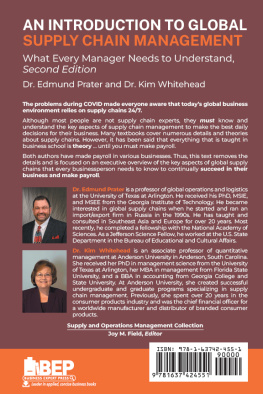

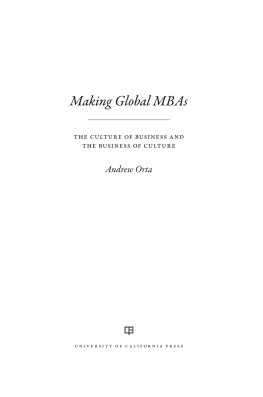
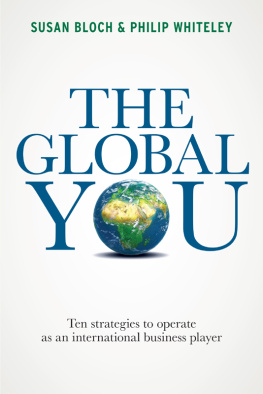
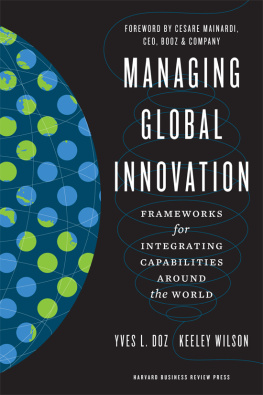

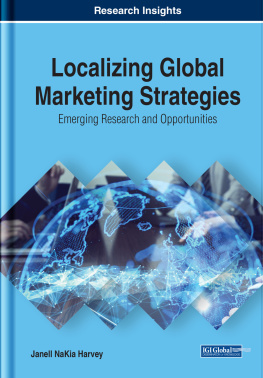
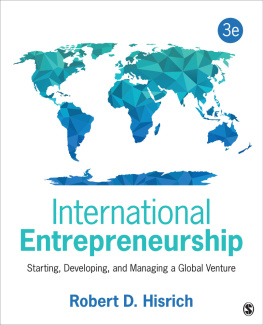
![Bhattacharjee Sudakshina - Improve your global business english: [the essential toolkit for writing and communicating across borders]](/uploads/posts/book/205847/thumbs/bhattacharjee-sudakshina-improve-your-global.jpg)